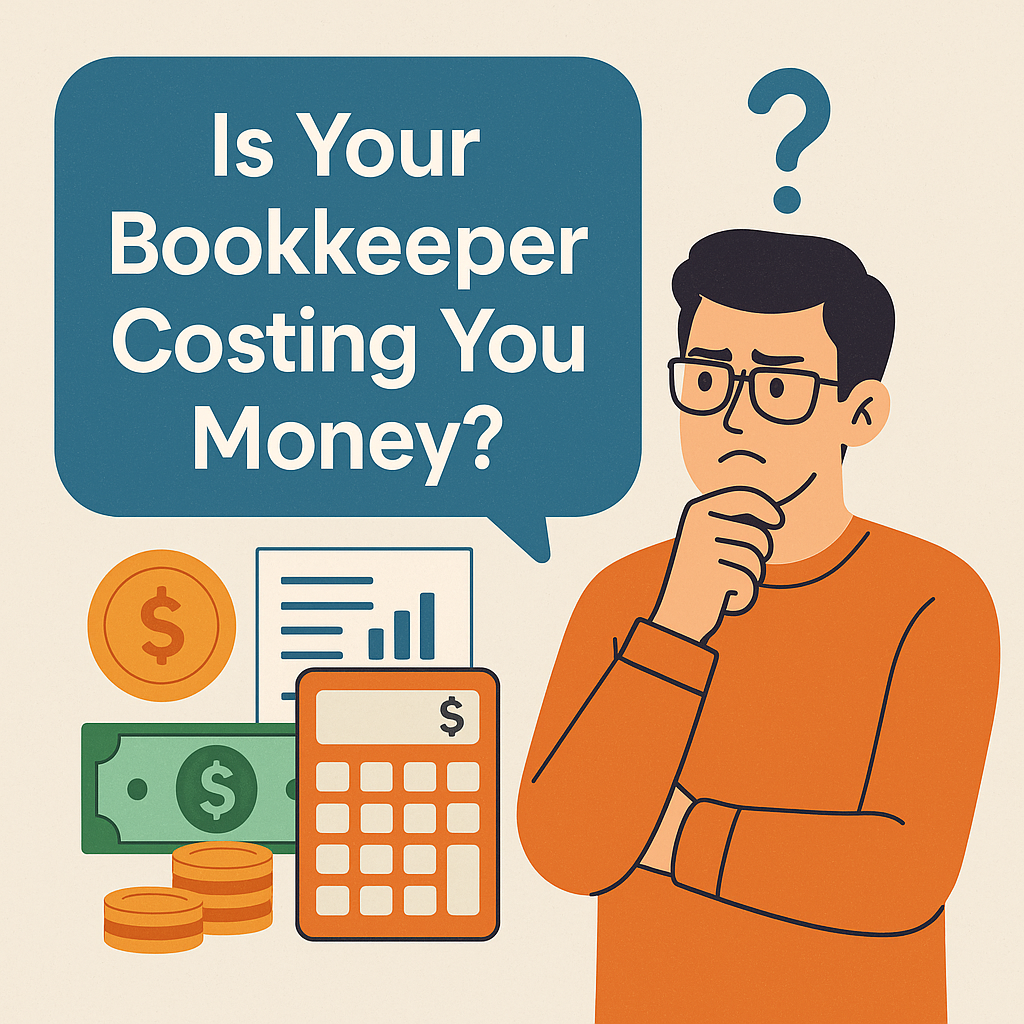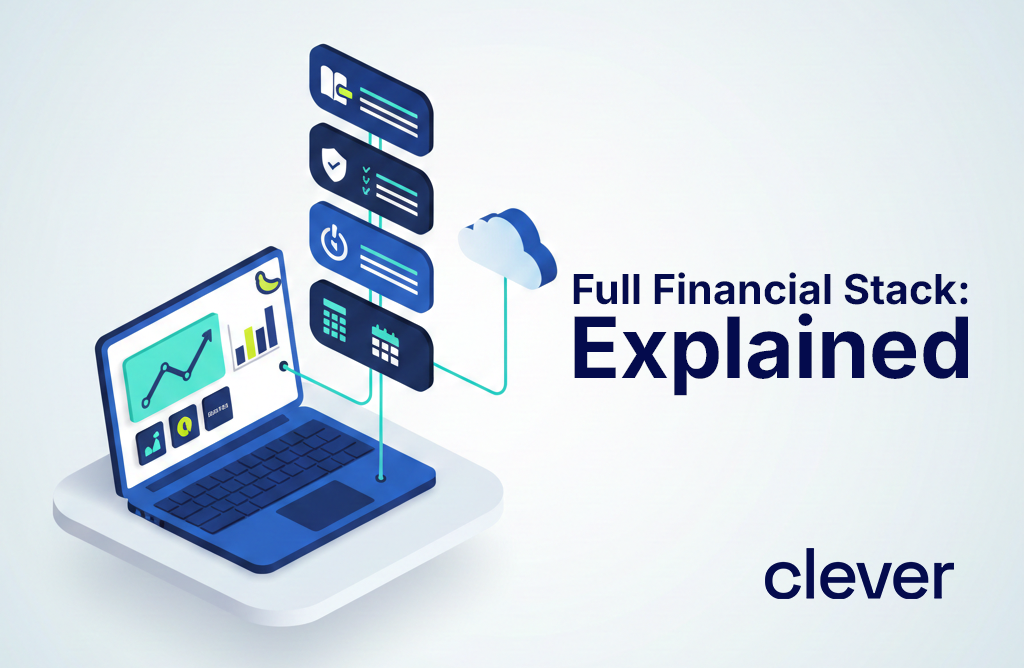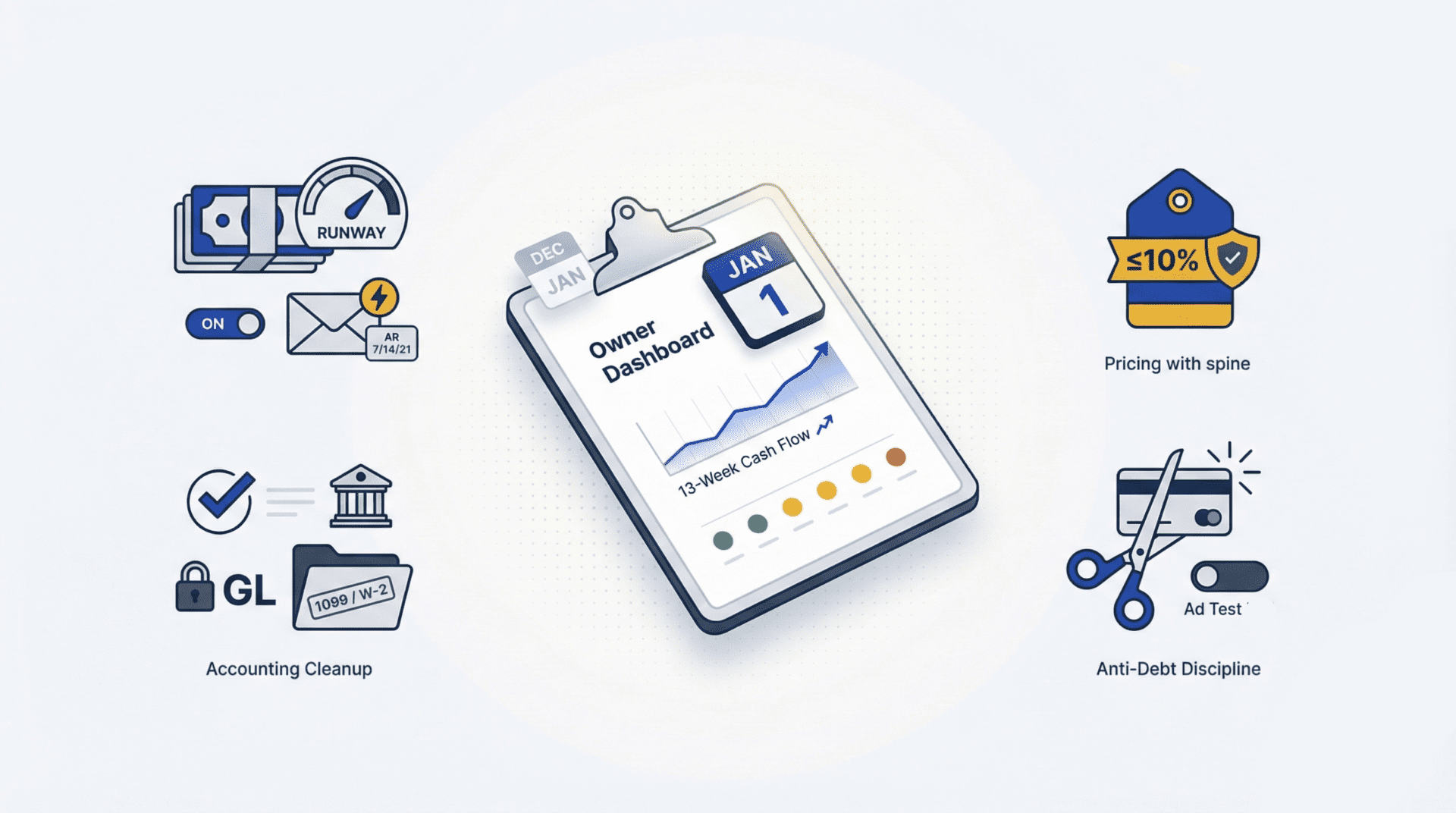
When it comes to small businesses and startups, bookkeeping often gets relegated to “another boring chore.” Yet sloppy books, delayed data, and mismatched processes can quietly drain profits and stall growth. This guide helps you answer a crucial question: Is your bookkeeper costing you money? We’ll explore the hidden costs of “basic” bookkeeping, flag the signs you’ve outgrown your current set-up, and show why outsourced accounting and real-time financial systems can transform your bottom line in CleverProfits style.
The Real Cost of “Basic” Bookkeeping
Many business owners start with the simplest bookkeeping setup, whether in Excel sheets or the most affordable software tier. At first glance, it seems economical. But over time the gaps add up:
- Time Drain
Manual data entry and reconciliation can consume 5 – 10 hours per month. If you value your time at $100/hour (founder or manager rate), that’s $500 – $1,000 lost each month. - Data Delays
Week- or month-old numbers mean you’re making decisions on outdated information. A pricing change or a vendor dispute can slip through the cracks, affecting cash flow and margins. - Error Risk
Studies show manual bookkeeping error rates hover around 1 – 5%. Those misplaced decimals or duplicate entries can inflate expenses, understate revenue, or trigger tax underpayments and penalties. - Hidden Overheads
“Basic” plans rarely include vendor reconciliations, payroll entries, or sales tax filings. When you tack on these essentials, costs climb rapidly often without clear visibility.
Takeaway: Cheap “bookkeeping” can become very expensive if you factor in lost productivity, hidden fees, and downstream mistakes.
Signs You’ve Outgrown Your Bookkeeper
How do you know your current bookkeeping approach is holding you back? Watch for these red flags:
- Frequent Surprises
If you’re seeing unexpected bank fees, missing invoices, or out-of-cycle reconciliations, your bookkeeper isn’t keeping pace with your business. - Slow Reporting
Waiting weeks for your monthly P&L and balance sheet is a recipe for reactive decisions and cash flow headaches. - Lack of Integration
If your bookkeeping system can’t sync with payroll, merchant processors (Stripe, PayPal), or project-management tools, you’re wasting manual effort on imports and corrections. - Tax Time Stress
Last-minute document hunts, K-1 chaos, or unfiled sales tax returns suggest your basic plan has no room for true compliance. - Stagnant Growth
When your financial data fails to illuminate growth opportunities—new revenue streams, cost-cutting, or pricing strategies—you need a partner, not just a bookkeeper.
Real-World Indicator: You’re spending more time fixing spreadsheets than strategizing growth. That time has a cost—often far greater than upgrading your accounting support.
When to Upgrade to Outsourced Accounting
Outsourced accounting packages provide a scalable, turnkey solution that grows with you. Consider upgrading when:
- Monthly Fees Justify ROI
If your combined internal labor cost and errors exceed a reliable outsourced fee (often $700–$2,200/month), it’s time to switch. - Need for Expertise
Outsourced teams bring CPA-level oversight, specialized software, and well-honed processes. They handle sales tax, payroll entries, vendor reconciliations, and coordination with your tax advisor. - Desire for Strategic Insight
Beyond number-crunching, outsourced accounting and CFO firms (like CleverProfits) include fractional CFO services: financial forecasting, cash flow management, and KPI dashboards. - Compliance Requirements
Trusting experts ensures timely 1099s, accurate sales tax filings, and audit-ready records. No more scrambling during tax season. - Growth on the Horizon
When you plan to scale, raise funds, or expand into new services, having clean, timely books is non-negotiable.
Pro Tip: Many outsourced providers offer tiered packages—start small with core bookkeeping, then layer on CFO services as needs evolve. You pay only for what you use, keeping overhead aligned with growth.
Real-Time Books = Better Decisions
Imagine knowing your cash position, profitability by project, and sales trends at a glance—every day. Real-time accounting systems provide:
- Instant Dashboard Views
Key metrics (cash runway, gross margin, burn rate) are updated live. No end-of-month waiting. - Automated Bank Feeds
Every transaction imports automatically, categorized via intelligent rules. Errors are flagged for review, not hidden in spreadsheets. - Collaborative Access
Your team, your accountant, and your CFO all share the same data, reducing version conflicts and email backups. - Scenario Modeling
Need to forecast next quarter’s runway under different hiring plans? Pull up projections in minutes, not days.
Real-time books empower agile decisions: ramp up marketing when cash permits, delay hires when runway tightens, and seize new opportunities with fresh data.
CleverProfits’ Scalable Financial Systems
At CleverProfits, we blend outsourced accounting with fractional CFO expertise to deliver:
- Custom Bookkeeping Workflows
- Automated transaction rules tailored to your industry (e.g. ad spend tagging, subscription revenue tracking).
- Monthly reconciliation with variance analysis to catch anomalies.
- Reporting & Dashboards
- Standard P&L, Balance Sheet, Cash Flow statements each month.
- Custom KPI dashboards (customer acquisition cost, lifetime value, burn rate).
- Fractional CFO Advisory
- Quarterly financial reviews to shape strategy.
- Cash flow forecasting.
- Budgeting support and scenario analysis.
- Tax & Compliance Coordination
- Collaboration with your CPA for tax prep.
- Sales tax returns and 1099 filings integrated within the system.
- Scalable Tiers
- Starter: Core bookkeeping and reports (MRR $1k–$10k).
- Growth: Full bookkeeping + tax coordination + CFO lite (MRR $25k–$50k).
- Enterprise: Advanced CFO services with financial planning (MRR $50k+).
Partnering with CleverProfits means your back-office systems stay ahead of growth, never behind it. We handle the heavy lifting so you focus on strategy, product, and customer experience.
FAQ’s
Q: Can a simple bookkeeper handle my size?
A: For very early-stage businesses with less than 50 transactions/month, basic bookkeeping may suffice. Once transactions exceed 100/month or sales channels multiply, you need automation, integrations, and expert oversight.
Q: What’s the real difference between a bookkeeper and an accountant?
A: Bookkeepers record transactions; accountants interpret them. Outsourced accounting blends both functions and adds CFO-level insights for forecasting, tax strategy, and decision support.
Q: How quickly can I switch to outsourced accounting?
A: Onboarding varies according to your business but could take anything from 2 weeks to 1 month for data migration, system setup, and workflow design. After that, you receive monthly deliverables on a set schedule.
Q: Will I lose control if I outsource?
A: No. You maintain ownership of your data and can access it any time. Outsourcing adds expertise and capacity, not loss of control.
Conclusion & Next Steps
Switching from “basic” bookkeeping to outsourced accounting with fractional CFO services is one of the highest-ROI moves a growing business can make. It saves time, reduces errors, enhances decision-making, and uncovers profit leaks you may not even know exist.
Ready to find out how much your bookkeeper is really costing you?
Book a call with CleverProfits today, and let’s turn your back-office into a profit engine.
Schedule Your Discovery Call
The Clever Writing Team
The CleverProfits writing team includes various team members in Advisory, Financial Strategy, Tax, and Leadership. Our goal is to provide relevant and easy-to-understand financial content to help founders and business leaders reach their true potential.





